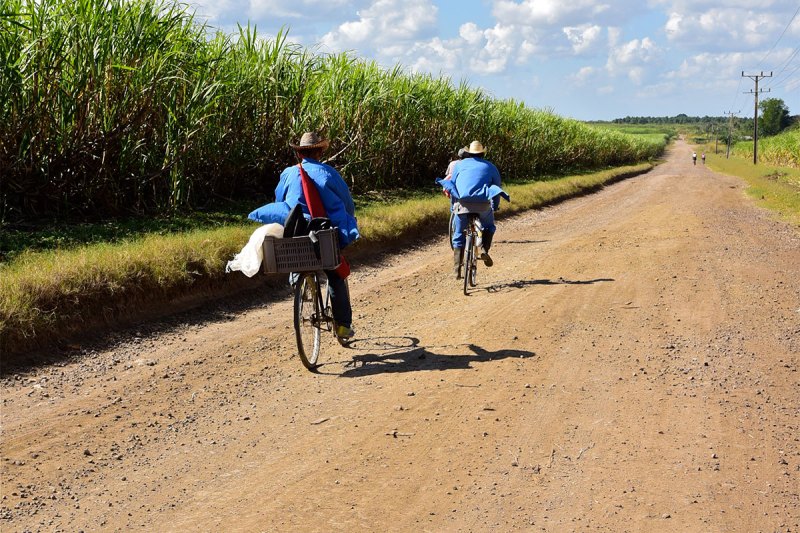Even though US travel restrictions are gradually being lifted, Cuba still remains under a cloak of mystery for the casual journeyer.
It’s prompted some to creative about how they get to and travel through the Caribbean nation.
Daniel Golden, owner of bike apparel brand Search and State sought out this challenge with a few friends, biking from Camaguey in the central part of the country north to Havana over five days. Golden took apart his FOCUS Cyclocross bike, packed it in a soft shipping case and headed south from his Vermont home.
“We wanted to explore the backcountry and see where you could and couldn’t go,” Golden said.
He tackled this endeavor with Joe Cruz, professor of philosophy at Williams College and Logan Watts, owner of bikepacking.com (a site devoted to long treks on two wheels).
The trio loosely organized the route and overall adventure, even down to accommodations.
“Some nights, we were literally knocking on doors looking for places to stay,” he said.
It revealed big lessons in Cuban hospitality. He says that just about everyone they met was upbeat, happy and extremely welcoming.
Golden shared some photos from the trip with us and it shows an adventure based around ingenuity and limited resources.
“We didn’t plan on a lack of access to water, so we had to get creative. Our water purifier was easily one of the most important things we brought,” he says.
He packed up after five days and flew back to Vermont, but the rest of the group is currently wrapping up an extended tour of the country.
We’re excited to see what else two-wheeled travel reveals about a nation just starting to reveal itself to Americans.









